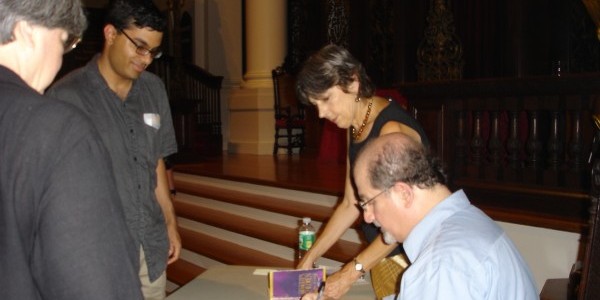I finally finished the audiobook for Salman Rushdie’s Shalimar the Clown last week. I say finally, because it was about 18 hours long.
It’s an okay book, made good by Rushdie’s way with words, made bad by his meandering style, made beautiful by his willingness to give in to every impulse he has, but ultimately made meh by his lack of restraint. There is so much in this book that in the end, there is too much and I don’t care about any of it.
The story starts in ’90s Los Angeles, goes back to partition era Kashmir, then further back to World War II France, then forward to ’50s and ’60s Kashmir, the ’60s Delhi, then fast forward back to modern day Los Angeles. By the time we get to the end, I am not sure which tangent to care about and which loose ends will be resolved. I don’t need a story to resolve everything– far from it– but I do need to have some sense of where it is headed, or if it is headed anywhere at all.
But Rushdie does have a way with words. As I said a couple of weeks ago, his character names alone are more creative than some authors’ entire life’s work. Continue reading





You must be logged in to post a comment.